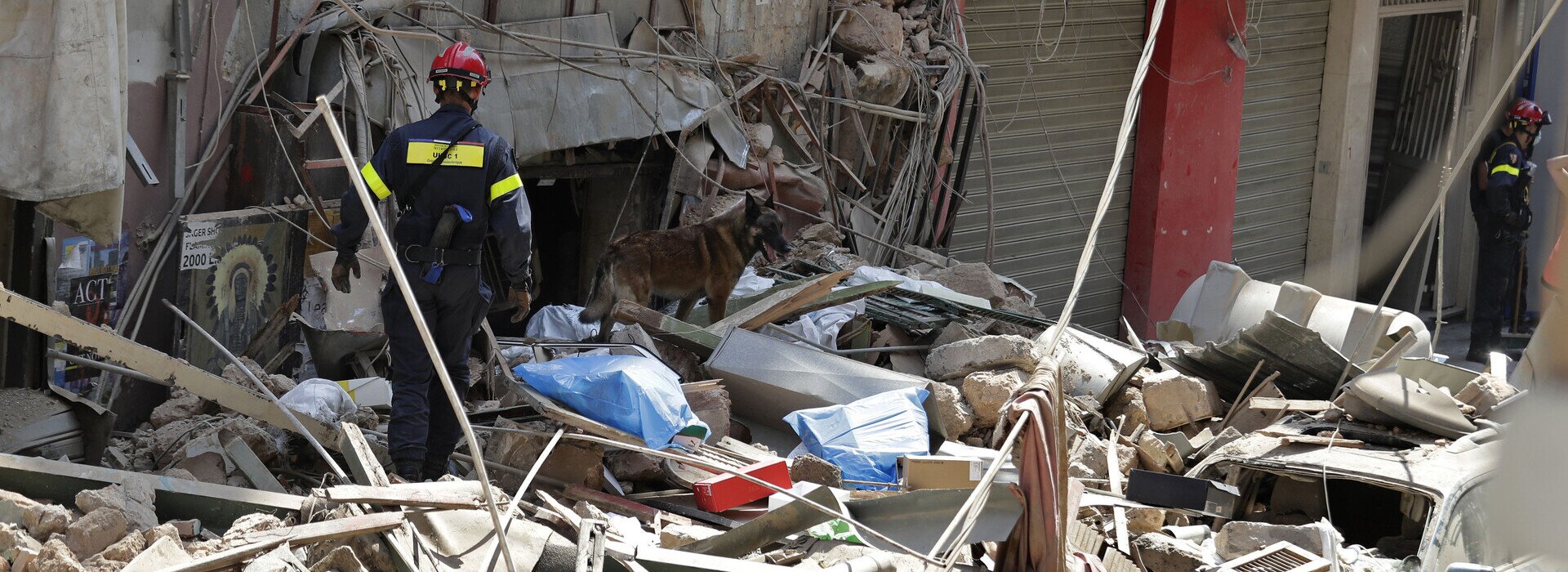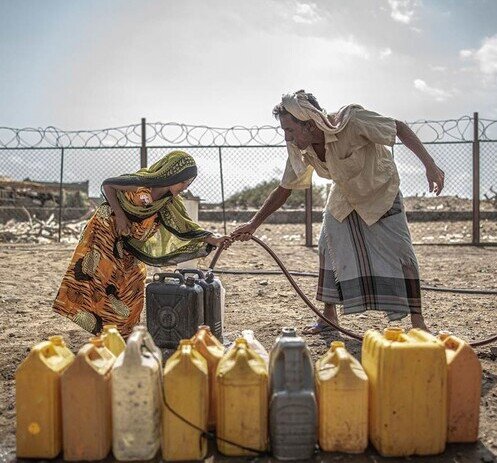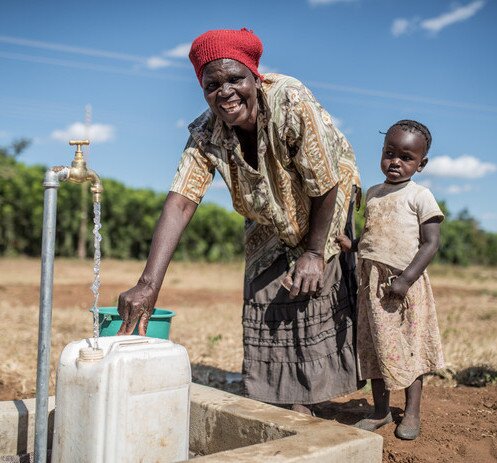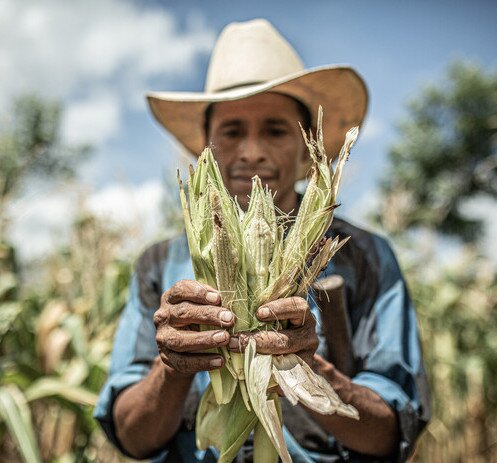A massive explosion at Lebanon's main port rocked Beirut, Lebanon, on 4 August 2020. French fireman and a rescue dog search in the rubble of a building after the explosion. (Credit: Hassan Ammar/AP/Shutterstock)
Updated on 10 November 2020
Triple Crises: Explosion, Coronavirus and Economic Downturn
On the evening of 4 August 2020, a series of explosions occurred in the city of Beirut, the capital of Lebanon. The extremely powerful main blast, at the Port of Beirut, claimed the lives of over 200 people, injured at least 6,000 and left around 300,000 homeless.
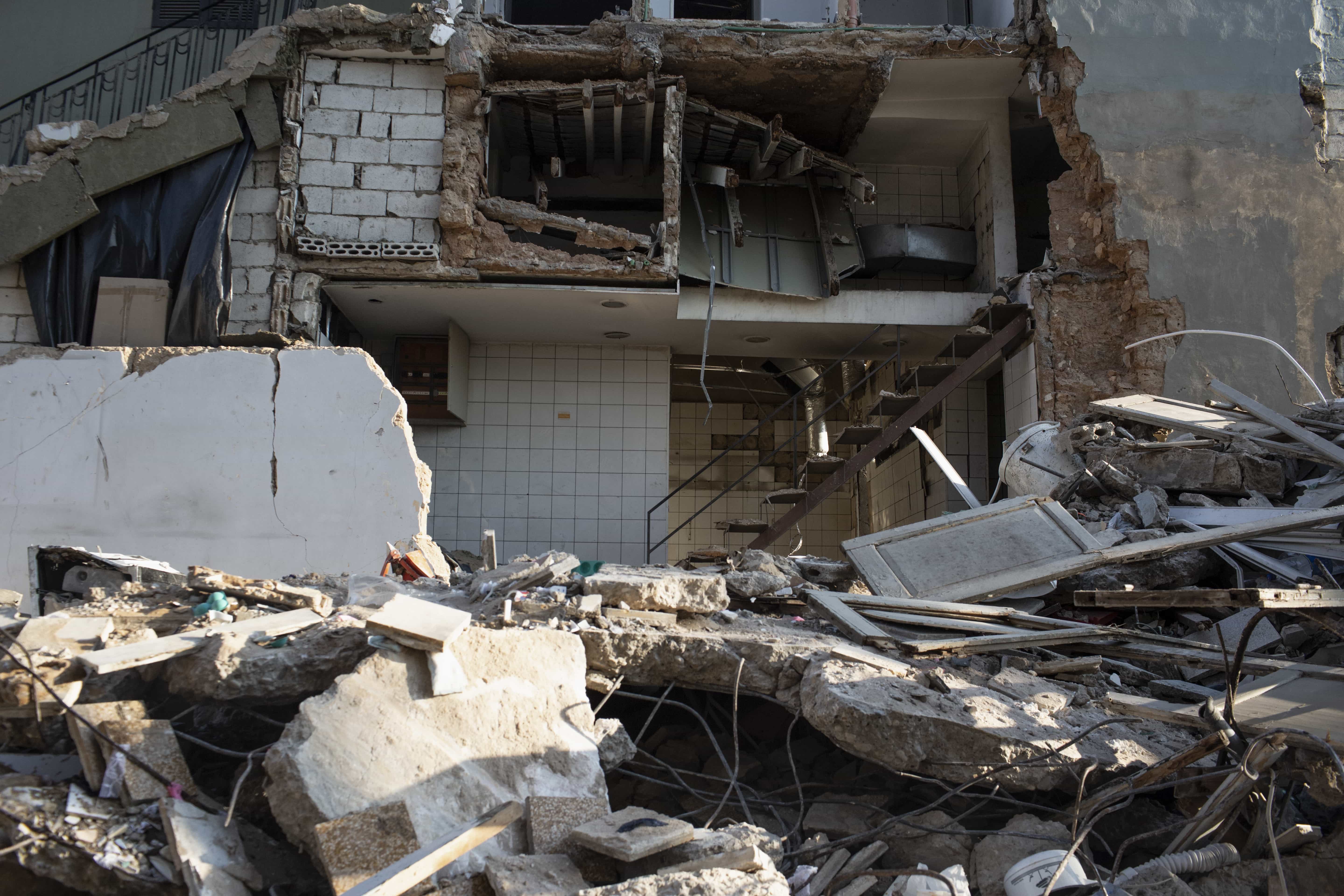
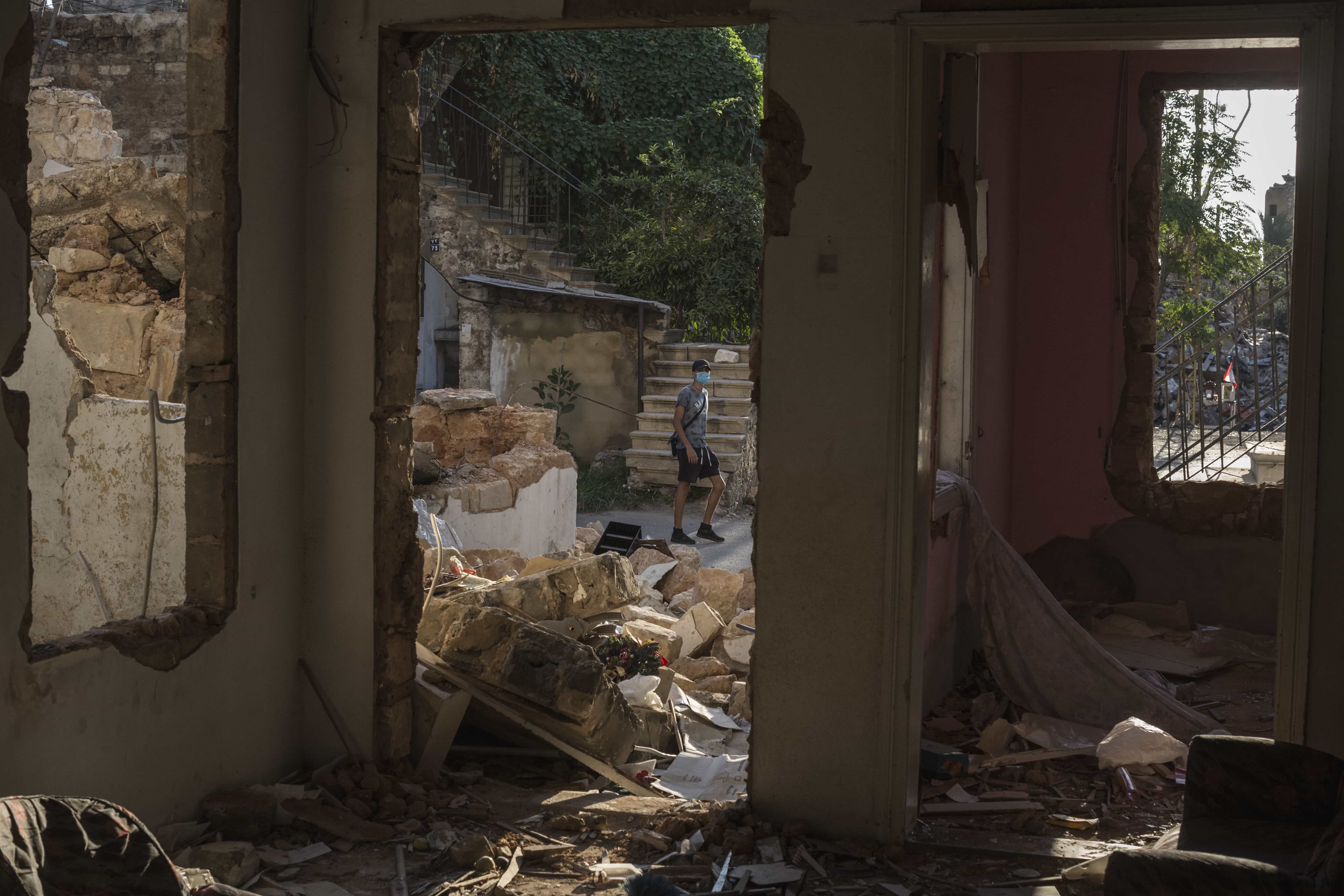
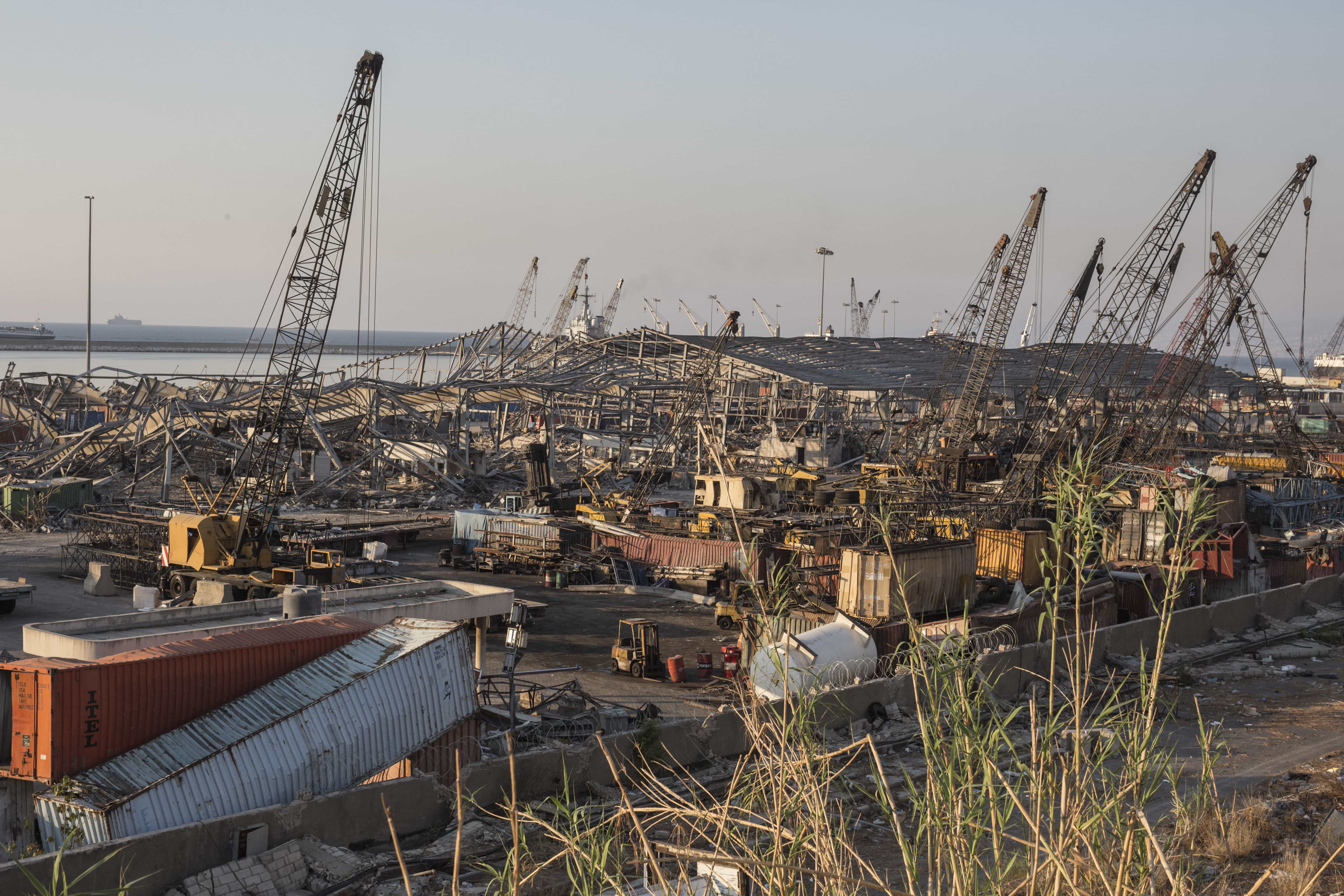
Oxfam’s Immediate Response
Oxfam began gearing up to respond right after the explosion. As our office in Beirut was damaged, our two other humanitarian teams outside the city have arrived at the capital to join our local partners to respond to the emergency. As of the end of October, we reached over 3,520 people affected by the explosion. We:
- Provided emergency food to over 1,600 people
- Distributed tarpaulins to over 510 homeless people for shelter
- Provided emergency cash assistance to a total of 660 people, including 120 people in 8 grassroots women groups
- Provided counselling to over 700 people, including psychological first aid, medical and protection referral services and handled gender-based violence cases
- Supported 30 small and medium-sized enterprises and 8 grassroots women groups
We’re carrying out assessments to see how we can support those who have lost their homes and livelihoods in the long-term, including labour market assessments to map job losses and employment challenges. Further, we are linking small and medium-sized enterprises working in agri-food and construction in other provinces to Beirut.
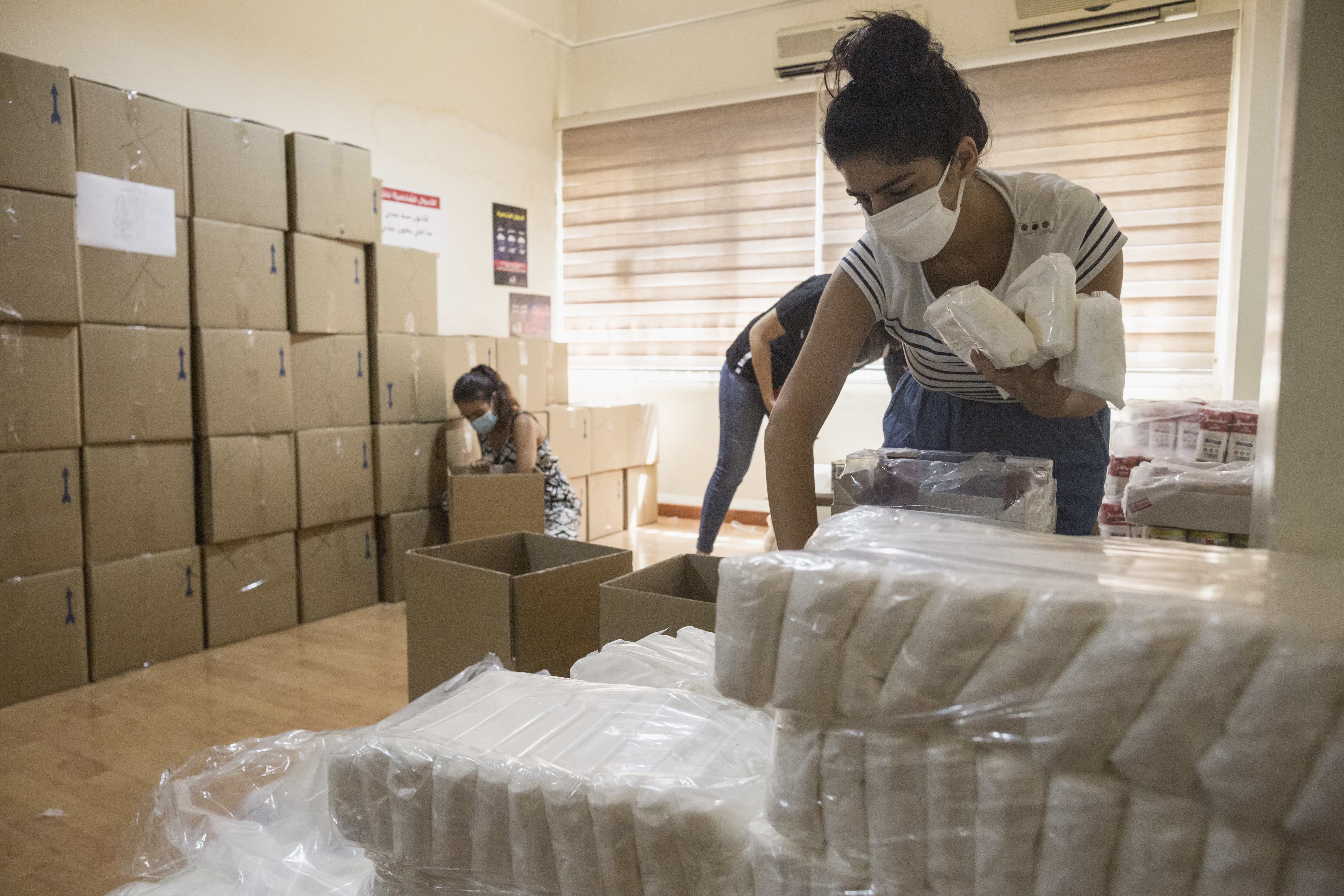
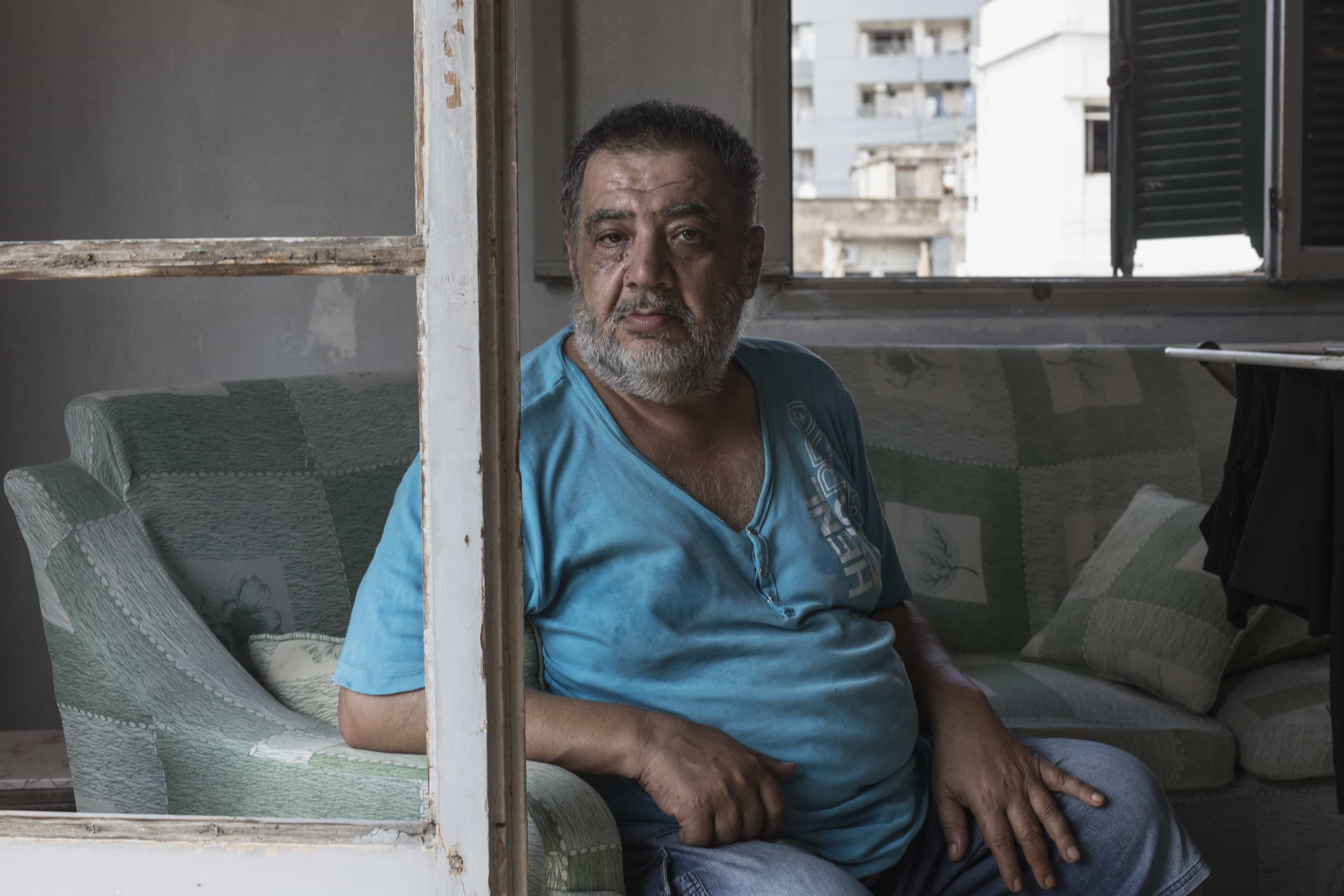
Oxfam has been providing continued support to Syrian Refugees in Lebanon
Oxfam has been working in Lebanon since 1993 providing humanitarian assistance to vulnerable people affected by conflict, and promoting economic development, good governance at the local and national levels, and women’s rights through work with our local partners.
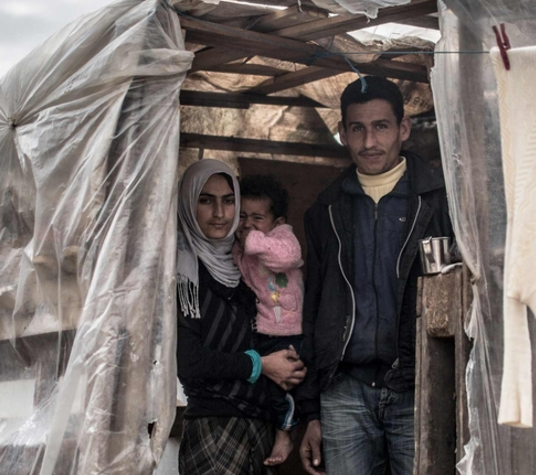
Ever since the war broke out in neighbouring Syria in Mar 2011, Lebanon has become one of the major countries that hosts of Syrian refugees. The population has increased by 30 per cent, putting immense pressure on society in terms of education, healthcare and housing. Oxfam has been providing support to 250,000 vulnerable people in Lebanon.
Please consider becoming an Oxfam partner now. By donating monthly, you can offer refugees the support they need in the long run to improve their lives.

